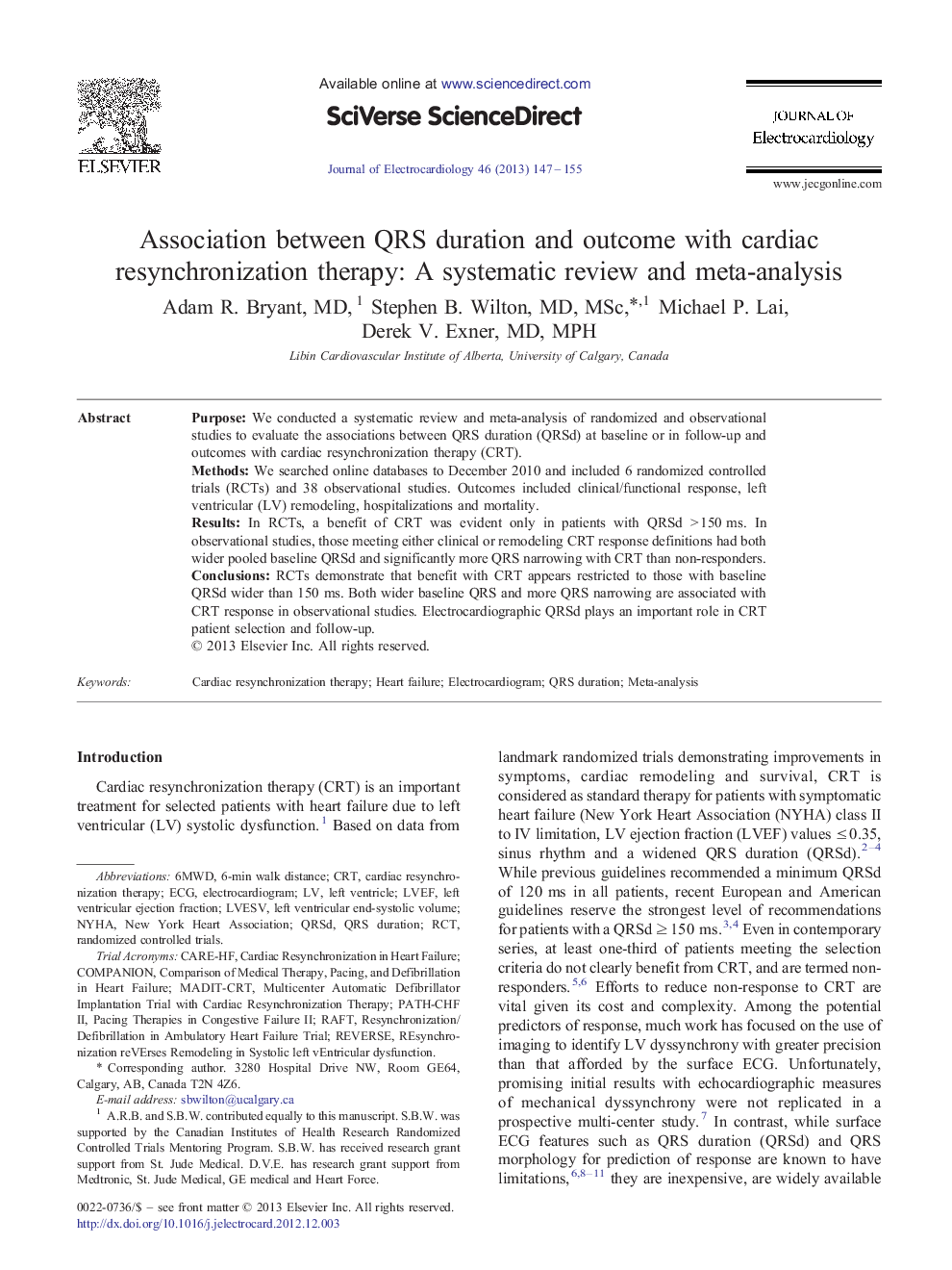| Article ID | Journal | Published Year | Pages | File Type |
|---|---|---|---|---|
| 2967785 | Journal of Electrocardiology | 2013 | 9 Pages |
PurposeWe conducted a systematic review and meta-analysis of randomized and observational studies to evaluate the associations between QRS duration (QRSd) at baseline or in follow-up and outcomes with cardiac resynchronization therapy (CRT).MethodsWe searched online databases to December 2010 and included 6 randomized controlled trials (RCTs) and 38 observational studies. Outcomes included clinical/functional response, left ventricular (LV) remodeling, hospitalizations and mortality.ResultsIn RCTs, a benefit of CRT was evident only in patients with QRSd > 150 ms. In observational studies, those meeting either clinical or remodeling CRT response definitions had both wider pooled baseline QRSd and significantly more QRS narrowing with CRT than non-responders.ConclusionsRCTs demonstrate that benefit with CRT appears restricted to those with baseline QRSd wider than 150 ms. Both wider baseline QRS and more QRS narrowing are associated with CRT response in observational studies. Electrocardiographic QRSd plays an important role in CRT patient selection and follow-up.
